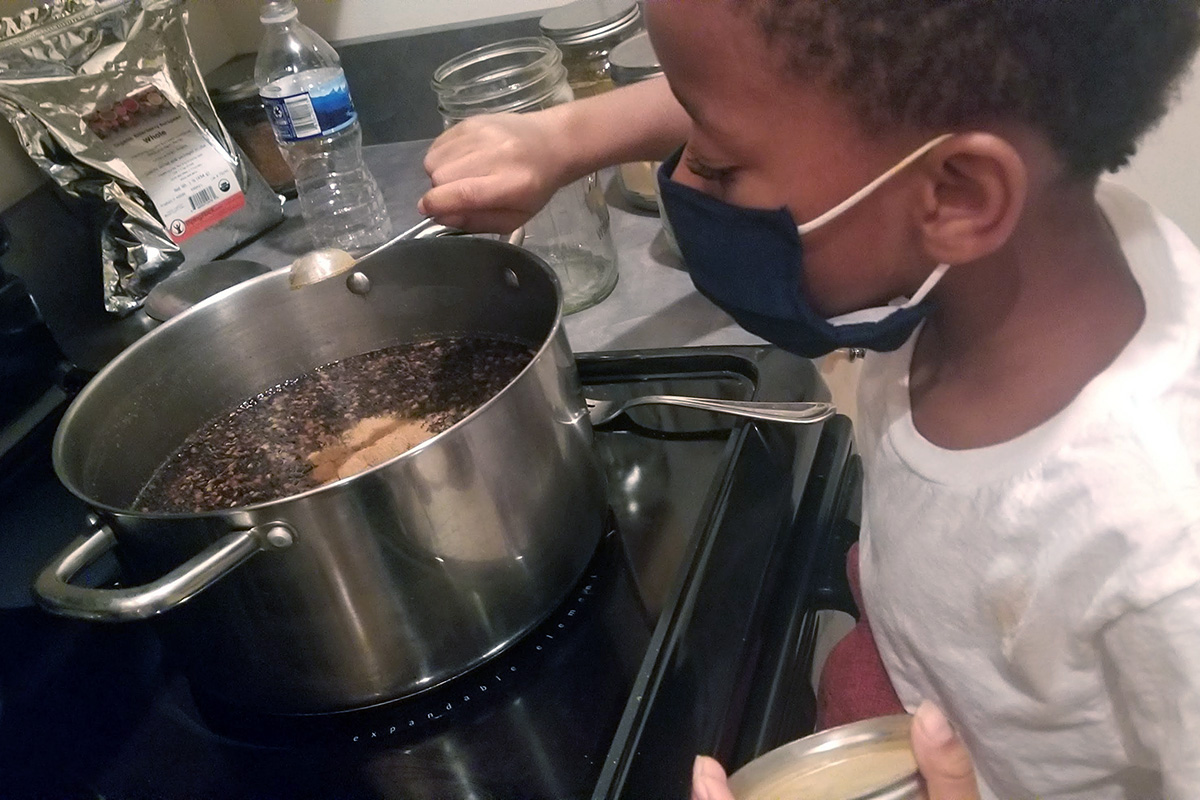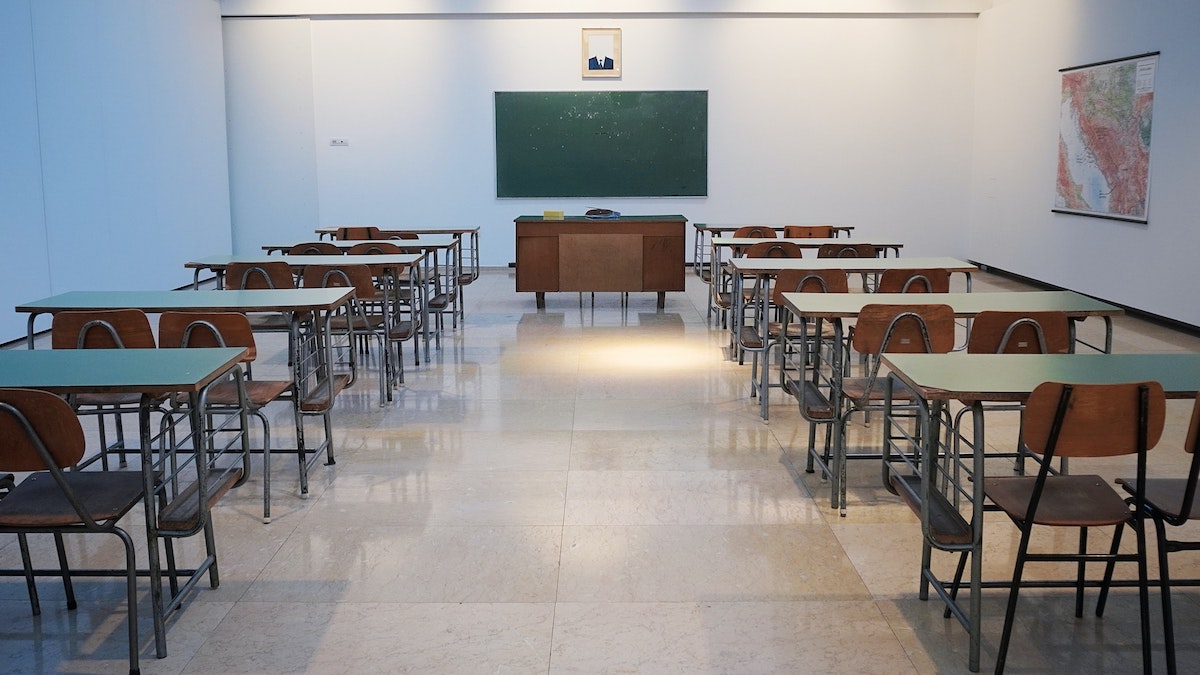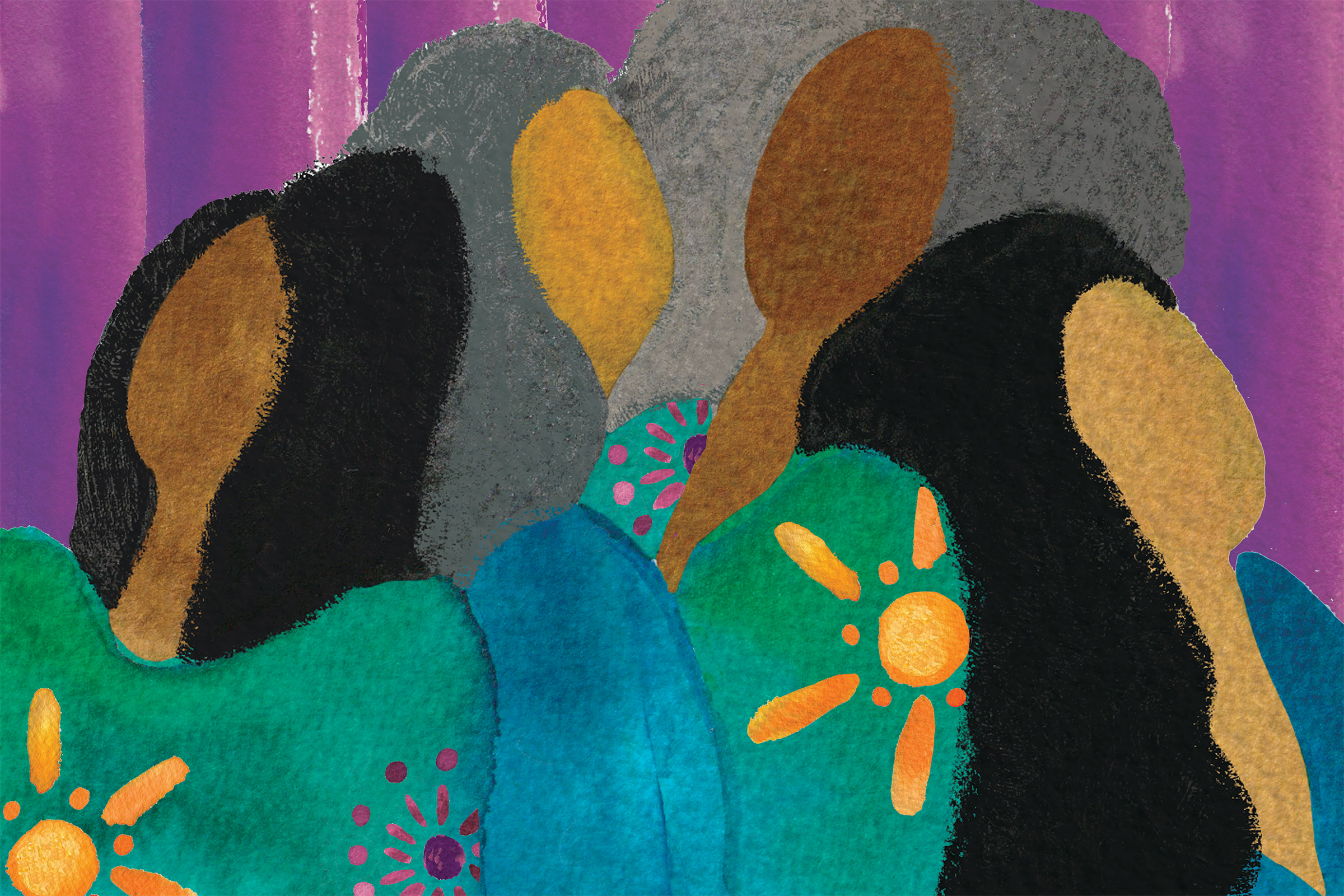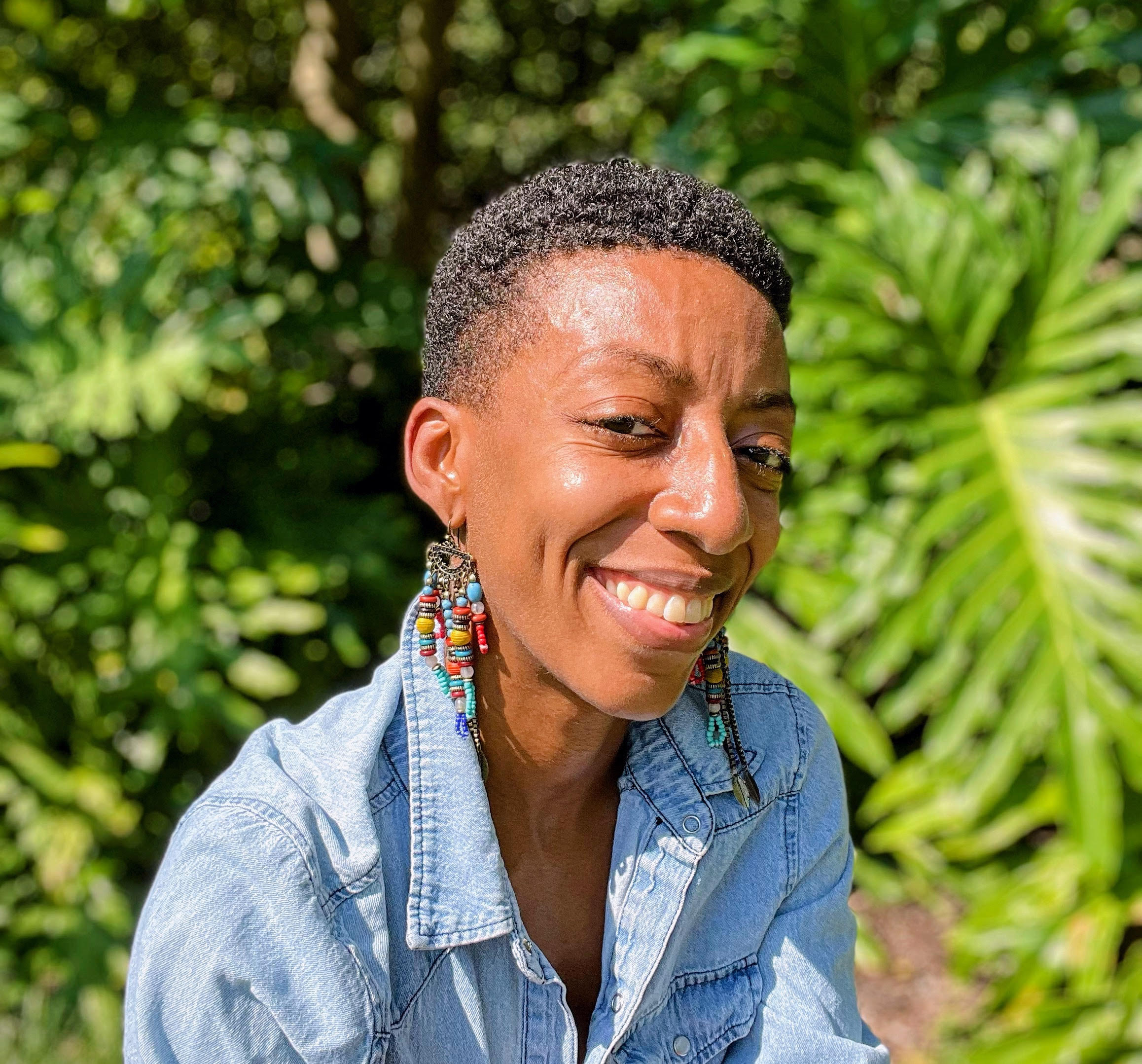I call myself Detroit raised and Mississippi made.
Jackson, Miss., is where I came of age, where I peeled back the layers to discover who I really am. It was where I found myself.
I became a wife here, then a mother, then a woman—separately while encompassing each role. It was an “up close and personal” encounter with layers of oppression and communities standing in the gap. It was where strangers became family because we shared the same goals: community, freedom and health. That was the theme for all of my enduring Mississippi relationships, but COVID challenged some of the most critical values of my life, community and health.
In my family we treat our food as medicine, as a kind of “stay ready so you don’t have to get ready” mindset. Our healthy vegan diet, whole-food vitamins, herbs and outdoors were our first line of defense. So when the pandemic hit, I was delighted to hear people talking about ginger, garlic, elderberry, vitamin C and sunshine. I was excited to see us return to nature. At first, there was no cure or treatment and doctors didn’t have the answers, so people were more open to letting the earth heal us.
I felt comfortable in this realm because I had been researching natural remedies to help the body cure itself since the birth of my first son eight years ago. I shared recipes and information I gathered throughout the years about strengthening the immune system, reducing inflammation and improving lung function. I felt prepared to serve my community.

Dissolution of My Children’s Village
What I wasn’t prepared for was the dissolution of the last remaining legs of the village for my children. Losing access to schools, childcare providers and friend groups was more frightening to me than the disease itself. I had been there before as a village-less, stay-at-home mom, and it required every ounce of me. So much so that I completely lost myself in that role. It felt like the pandemic was involuntarily pushing me back in that direction.
Don’t get me wrong, I love my babies. But the saying “it takes a village to raise a child” is absolutely true. For many of us, paid childcare and schools are the last remaining consistent parts of our children’s village.
As much as we claim the schools are not babysitters, this moment in time proves that schools provide so much more to families than a child’s education. As much as we need our children educated, we also need them cared for during working hours. COVID-19 made it clear that the school was standing in the gap of the deteriorating village.
Our schools provide more than just education, but also meals, care, nurturing, cleaning and emotional support. So when schools decided to go virtual, parents felt the sting. All of the supporting staff roles including janitors, cooks and counselors were pushed back into the household during working hours.
Before the pandemic, schools took on roles duplicated in homes across the country and centralized them with breakfast/lunch services, janitorial services, and seven hours of care and instruction. This support made it feasible for women to go to work without feeling negligent, or at least feeling less negligent (I think we all struggle with mom guilt from time to time). But here we were in 2020, returned back to decentralized cooking, cleaning, nurturing and educating while trying to maintain employment. It was disastrous.
During COVID, we lost an essential part of our village, and we as parents felt it in our mental health, our pockets and our patience. I remember my house feeling so tense as I tried to figure out how to make this new normal work. I’m sure I wasn’t alone.
Many of us women already referred to the duties we were responsible for after work as the second shift. Now it’s like working the first shift and the second shift simultaneously. I just felt like it wasn’t sustainable, nor healthy. I needed to choose between work and being there to educate and nurture my children. I knew that stress weakens the immune system and a pandemic is a terrible time for that, so I decided to focus on my children and refused to push myself to the limit.
I wasn’t alone in my decision—3.5 million women with school-aged children lost, left or took leave from their jobs in 2020 the Census Bureau reported, and I would assume the lack of support for their children had a great influence.

‘Invisible Hand of Societal Expectations’
As I pondered it more, what seemed to be an individual decision based on the best interest of my household actually had systemic roots. I told myself that it just makes more sense for me to stay at home with the kids. I only desired to work outside of the home because it provided a sense of fulfillment, personal financial security and community. I honestly felt like I could be a better mother if I felt fulfilled and had support so I wouldn’t be responsible to care for my children 24 hours every day. But during this pandemic, the sacrifice felt obligatory and logical.
My then-partner would always say “you’re just better at it than me,” referring to my care for the kids. Although in some ways I agree with him, I don’t think it was an innate advantage. It was earned through studying, trial, error and tears—nothing my partner couldn’t duplicate to get similar results.
The other elephant in the room in the decision-making was the difference in our income. He earned significantly more money than I did, and our medical insurance was tied to his employment. He earned more money, but honestly I don’t think it was because he was smarter or more talented than me. He chose a historically, male-dominated profession, and attached to it were all the financial benefits preserved by the patriarchy. I chose a career that was historically dominated by women and attached to it were all the financial disadvantages patriarchy institutionalized.
So, the larger societal context definitely played a role in who stayed at home with the children in our household, but also millions of households around the country. My ex-partner was even offered an opportunity to work from home, but declined, saying that our children were too much of a distraction.
I have heard several similar anecdotal stories. Research shows that women bore an unequal distribution of childcare during the pandemic. So doing what was “best for our family” was more accurately the invisible hand of societal expectations and women’s historical wage suppression.
In a way, the privilege of the patriarchy sheltered me as well. I was able to stop working based on the income of my ex-partner. However, that was not everybody’s story. For many women, I am sure magic, community and ingenuity were required. As for me, this experience made relocating our family closer to grandparents a dire necessity. We had to ensure access to schools just to take the stress off of ourselves and our marriage. So we packed up and moved away from Mississippi in the middle of a pandemic seeking family support for our children.

Life took another unexpected turn, and my then-partner and I separated shortly after the move. The support we thought we would have was not present, and it became clear that we were unable to negotiate our different perspectives on our roles inside of our marriage. I honestly thought this would have a devastating effect since I moved away from both my family and Mississippi support systems, making it difficult to forge new relationships in the middle of a pandemic.
Despite the distance, my family in my hometown of Detroit and in my “growntown” of Mississippi showed me that I was forever family and that they would support me no matter how far I went.
There were women in Mississippi I talked to daily. Women who prayed for me, did readings for me, women who sent me money and words of encouragement. There were women in Mississippi who walked me through this relationship transition and still walk with me daily on my journey to wholeness.
I may be gone from Mississippi physically, but I carry a piece of Mississippi in my heart wherever I go.
This MFP Voices essay does not necessarily represent the views of the Mississippi Free Press, its staff or board members. To submit an essay for the MFP Voices section, send up to 1,200 words and factcheck information to azia@mississippifreepress.org. We welcome a wide variety of viewpoints.






